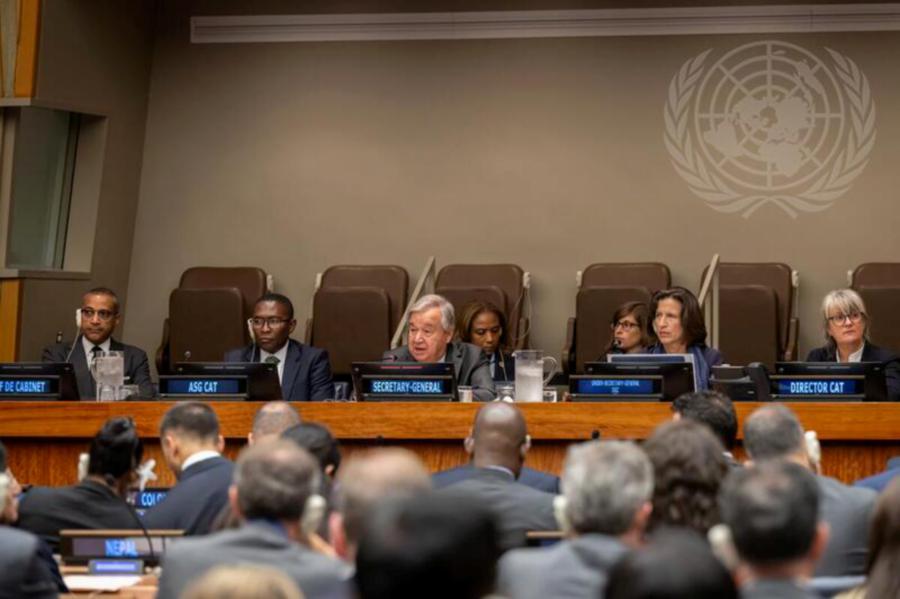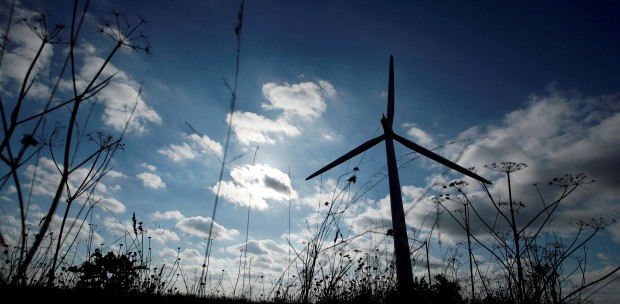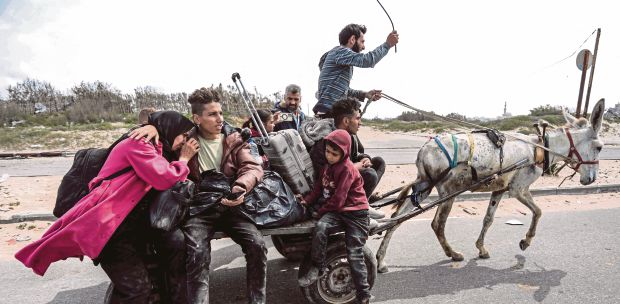UNITED NATIONS, New York: UN Secretary-General António Guterres on Wednesday issued a stark warning, characterising the present state of the climate crisis as the opening of the "gates of hell".
Regrettably, he noted, nations responsible for carbon emissions remained conspicuously silent.
Guterres said this during his address at the "no-nonsense" Climate Ambition Summit, which permitted speaking slots solely to governments identified as "first movers and first doers".
Malaysia did not secure a podium spot, alongside major polluting economies such as the United States, China, India, and the United Kingdom.
"Our focus here is on climate solutions – and our task is urgent. Humanity has opened the gates of hell," Guterres said in his opening remarks.
"Horrendous heat is having horrendous effects. Distraught farmers watching crops carried away by floods. Sweltering temperatures spawning disease. And thousands fleeing in fear as historic fires rage."
Climate action, Guterres said, is dwarfed by the scale of the challenge.
"If nothing changes we are heading towards a 2.8 degree temperature rise – towards a dangerous and unstable world."
However, Guterres maintained that the future remains open to change, firmly placing the responsibility in the hands of world leaders.
He outlined the possibility of limiting global temperature rise to 1.5 degrees and building a world of clear air, green jobs, and affordable clean power for all.
"The path forward is clear. It has been forged by fighters and trailblazers – some of whom are with us today."
He acknowledged the vital role played by activists refusing to be silenced, indigenous peoples defending their lands against climate extremes, forward-thinking chief executives transforming their business models, and financiers supporting a just transition.
Additionally, he commended mayors leading the charge towards a zero-carbon future and governments striving to eradicate fossil fuels while protecting vulnerable communities.
Guterres emphasised the need for solidarity, support, and action, especially for climate champions in the developing world.
He called for major emitters, who have benefited most from fossil fuels, to redouble their efforts to reduce emissions and for wealthy nations to aid emerging economies in this endeavour.
The proposed Climate Solidarity Pact, he said, seeks to address this by urging countries to accelerate their transition from fossil fuels to renewables, end fossil fuel subsidies, and establish ambitious renewable energy targets in line with the 1.5-degree limit.
The Acceleration Agenda, another key component of Guterres' strategy, demands climate justice and calls for developed nations to fulfil their promises of financial support.
It advocates for a comprehensive overhaul of the global financial system to support climate action, including putting a price on carbon and revamping the business models of Multilateral Development Banks to attract more private financing for developing countries.
Guterres further stressed the urgency of operationalising the Loss and Damage Fund at COP28, replenishing the Green Climate Fund, and doubling adaptation funding.
"Developed countries must meet the US$100 billion commitment (per year for climate action in developing countries)," he said.
He underscored the necessity of implementing a universal early warning system by 2027, as laid out in last year's Action Plan.
Simultaneously, he said the Acceleration Agenda calls on businesses and financial institutions to embark on genuine net-zero pathways.
Guterres condemned "shady pledges" that have betrayed the public trust and criticised companies that obstruct the transition to net-zero, using wealth and influence to delay, distract and deceive.
"Every company that truly means business must create just transition plans that credibly cut emissions and deliver climate justice, in line with the recommendations of my High-Level Expert Group."
Meanwhile, in his closing remarks, Guterres said he was "quite disappointed" by what the G-20 concluded about climate.
"The geopolitical divides are still not allowing for what must be an historic compromise between developed economies and emerging economies that are the biggest emitters," he added.
Out of over 100 governments that expressed interest in speaking at the summit, only 34 were granted the opportunity by the UN chief.
They were: Austria, Barbados, Brazil, Canada, Chile, Colombia, Cook Islands, Cote d'Ivoire, Cuba, Czech Republic, Denmark, Estonia, European Union, France, Germany, Iceland, Kenya, Malawi, Nepal, Pakistan, Palau, Portugal, Republic of the Marshall Islands, Romania, Saint Lucia, Samoa, Slovakia, South Africa, Spain, Sri Lanka, Thailand, Tuvalu, Vietnam, and Egypt, who also serves as COP27 President.
A select few non-member states and international financial institutions also addressed the Summit, namely insurer Allianz, the Asian Peoples' Movement on Debt and Development, the Green Climate Fund, the International Monetary Fund, and the World Bank.
Although the UK and the US were not given speaking slots, the summit heard from London and the State of California.
Criticism has been mounting against UK Prime Minister Rishi Sunak for reversing key green policies, including a delay in transitioning to electric vehicles and postponing the ban on new petrol and diesel car sales from 2030 to 2035.
"We are in the final stages of what actions are needed to preserve this planet and regrettably I'm not sure everybody is getting it," said Barbados Prime Minister Mia Mottley.
She called on debt pauses and cancellations and changes in multinational development banks and the insurance industry.
Mottley, a leader of a nation highly vulnerable to the impacts of climate changer, lamented that global attention was primarily fixated on Ukrainian President Volodymyr Zelenskyy, who was concurrently addressing the Security Council.
While underscoring her solidarity with Ukraine, she highlighted the gravity of the climate crisis, which is "a greater threat because more lives are at stake globally than they are in Ukraine."
NST specialist writer Tharanya Arumugam is a 2023 fellow of the United Nations Reham Al-Farra Memorial Journalism Fellowship.






